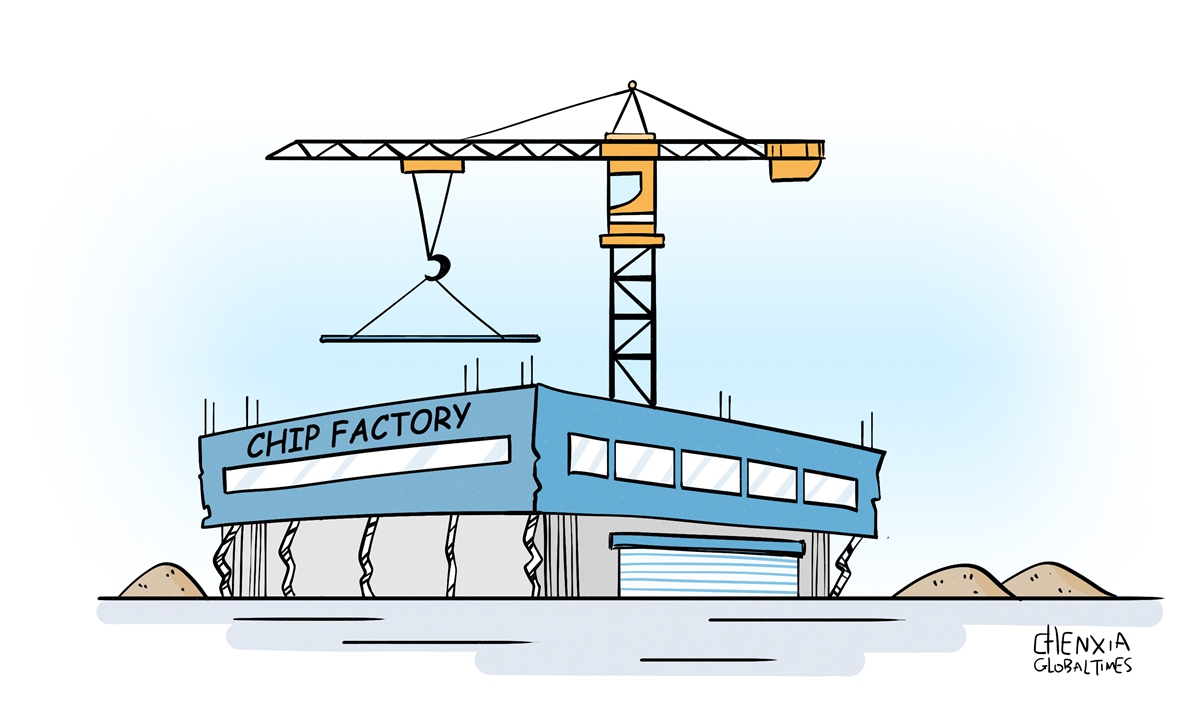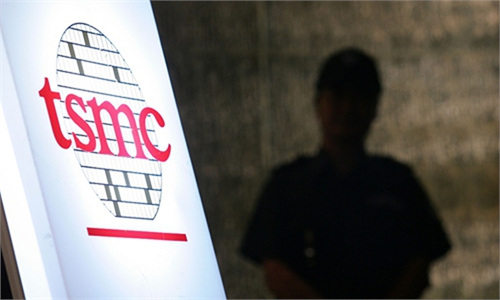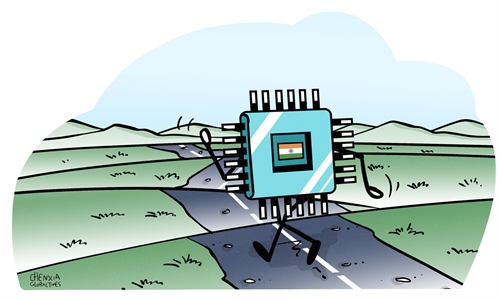
Illustration: Chen Xia/Global Times
Taiwan Semiconductor Manufacturing Co (TSMC) is set to receive up to $6.6 billion in direct funding under the CHIPS and Science Act to support TSMC's investment in three fabrication plants in Phoenix, Arizona. However, TSMC's renewed commitment to the US and its investment in Arizona will be a burden to the government's fiscal expenditure, resulting in a waste of taxpayer funds, unlike claims by US officials and media outlets that it will support US semiconductor production and new high-tech jobs.Under a preliminary agreement announced by the US on Monday, TSMC will build a third factory in Phoenix. This came after more than a few media outlets reported that TSMC is running into obstacles with its US expansion plan. Citing the company's Chief Financial Officer Wendell Huang, Bloomberg reported in January that TSMC has delayed its second plant in Arizona because of a setback with the first fabrication plant.
It's no secret that TSMC faces difficult problems in the US, including a lack of skilled American workers, cost overruns and clashes with local labor unions. As reported, TSMC in the last year pushed back initial production at its first factory to 2025 from 2024, saying local workers lacked expertise in installing some sophisticated equipment.
It's a bit ironic that, against this backdrop, Washington is still willing to provide generous subsidies to TSMC, because as long as the chipmaker announces plans to build plants in the US, these workshops, steel bars and cement can be used as political capital for US politicians, propagated as a paradigm of America's strategy to revive its semiconductor manufacturing sector, even if no semiconductors are produced from these factories.
The US has fallen behind in semiconductor manufacturing. A report released by McKinsey said in 2023 that semiconductors manufactured in the US account for only about 12 percent of the global total, down from 37 percent 30 years earlier.
This is a result of market choice. If the government is unable to improve US manufacturing competitiveness, increase the number of skilled workers, and reduce the production costs, simply relying on subsidies to attract multinational corporations will be a total waste of taxpayer money that should be spent instead on more needed public projects.
It should be noted that the US manufacturing sector continued to contract in February, as the manufacturing purchasing managers index stood at 47.8 in February, down 1.3 points from January - the 16th consecutive month of contraction. So far, the renaissance in US manufacturing is still just empty words.
Against this backdrop, it won't be easy for the US to revive its semiconductor manufacturing sector. TSMC may use some of the grant money to build a third factory in Phoenix, but when it comes to increasing chip production capacity in the US, such acts are perhaps more symbolic than practical.
Although TSMC's third plant in the US still has a long way to go in terms of mass production, the US Commerce Department said the new plant will produce 2-nanometer or more advanced chips. This means that Washington will further ramp up efforts to force TSMC to hand over its most advanced technology. It is our sincere hope that TSMC can withstand pressure from the US.
In the foreseeable future, the real competition will focus on the high-end chip field. The US government is likely to flex all available policy muscles to strengthen the country's competitive advantages while weakening those of its adversaries, and try to give US-based semiconductor producers an unfair advantage over competitors in Asia. In this process, market rules will be distorted. US semiconductor policy will disrupt the global supply chain and further harm the world's already fragile economy.
The author is a reporter with the Global Times. bizopinion@globaltimes.com.cn



